The Marvel comics revolution: From shoestring Spider-Man to blockbusting Black Panther
Fans of superhero movies have never had it so good, with ‘Avengers: Infinity War’ wowing audiences around the world. But it all might be about to end, says David Barnett
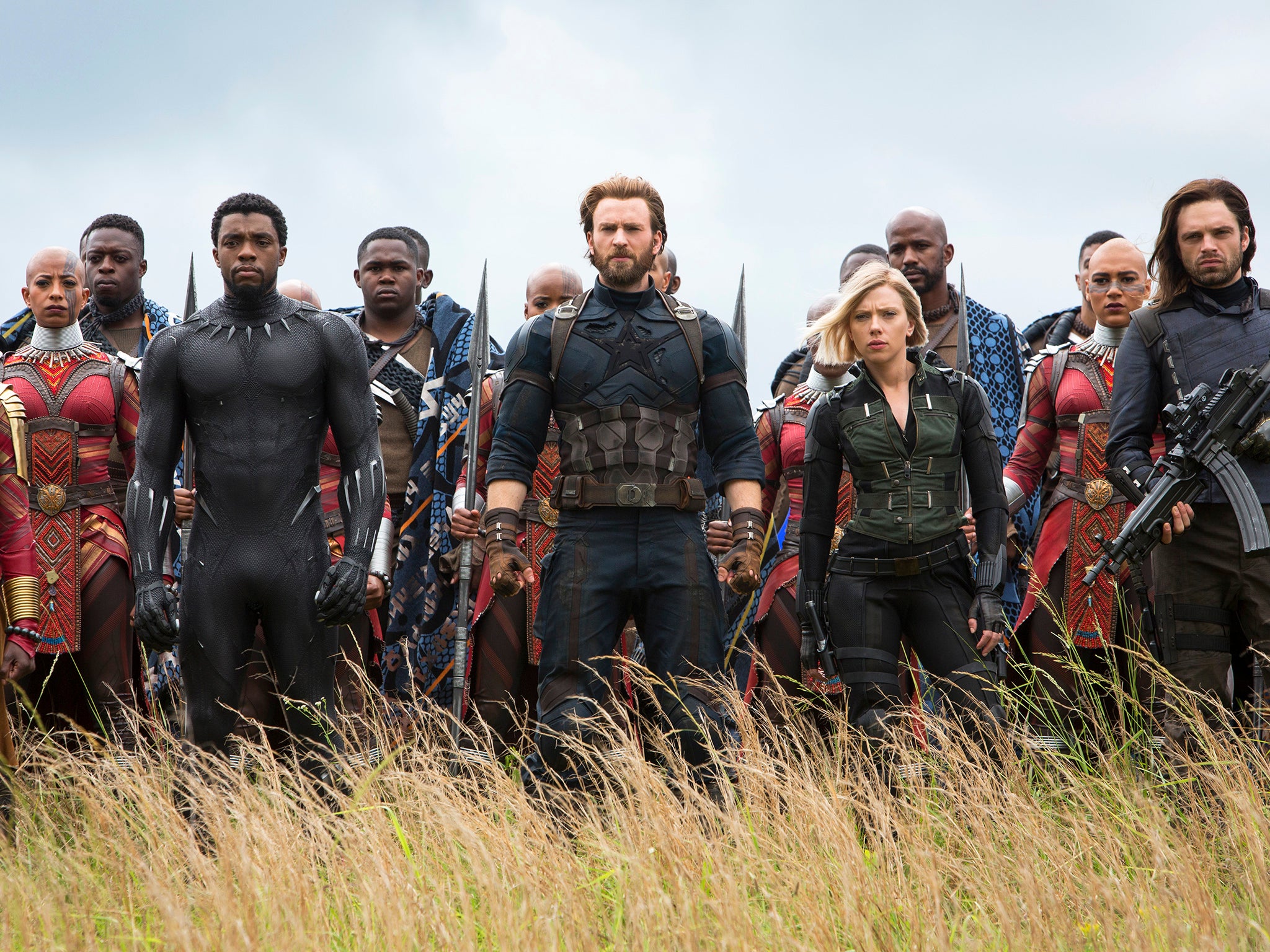
Here is my origin story with superhero movies. It was the late 1970s, and I would have been eight or nine. Because kids were more free-range back then, I attended, with friends, the Saturday morning children’s club at my local cinema in Wigan. The ABC Minors put on cartoons, feature films and sometimes live acts. On this particular Saturday they were showing Spider-Man.
Oh, I cannot tell you what it was like for a boy raised on Marvel comics to see a live-action movie starring one of the staple heroes of my life. Spider-Man. Up on the screen. Not a cartoon. Real people, all those characters I’d grown up with made flesh, wallflower Peter Parker, timid Aunt May, irascible newspaper editor J Jonah Jameson.
Yeah, yeah, you say, as you prepare to go and watch Avengers: Infinity War, the 19th movie in the decade-long occupation of the multiplexes by the Marvel Cinematic Universe. You know how many superheroes there are in this movie? All of them. Including Spider-Man.
But 40 years ago, superhero movies were as rare as radioactive arachnids. They were an event, but only for comics fans. The mainstream pretty much ignored them. And that was because they were, by and large, rubbish.
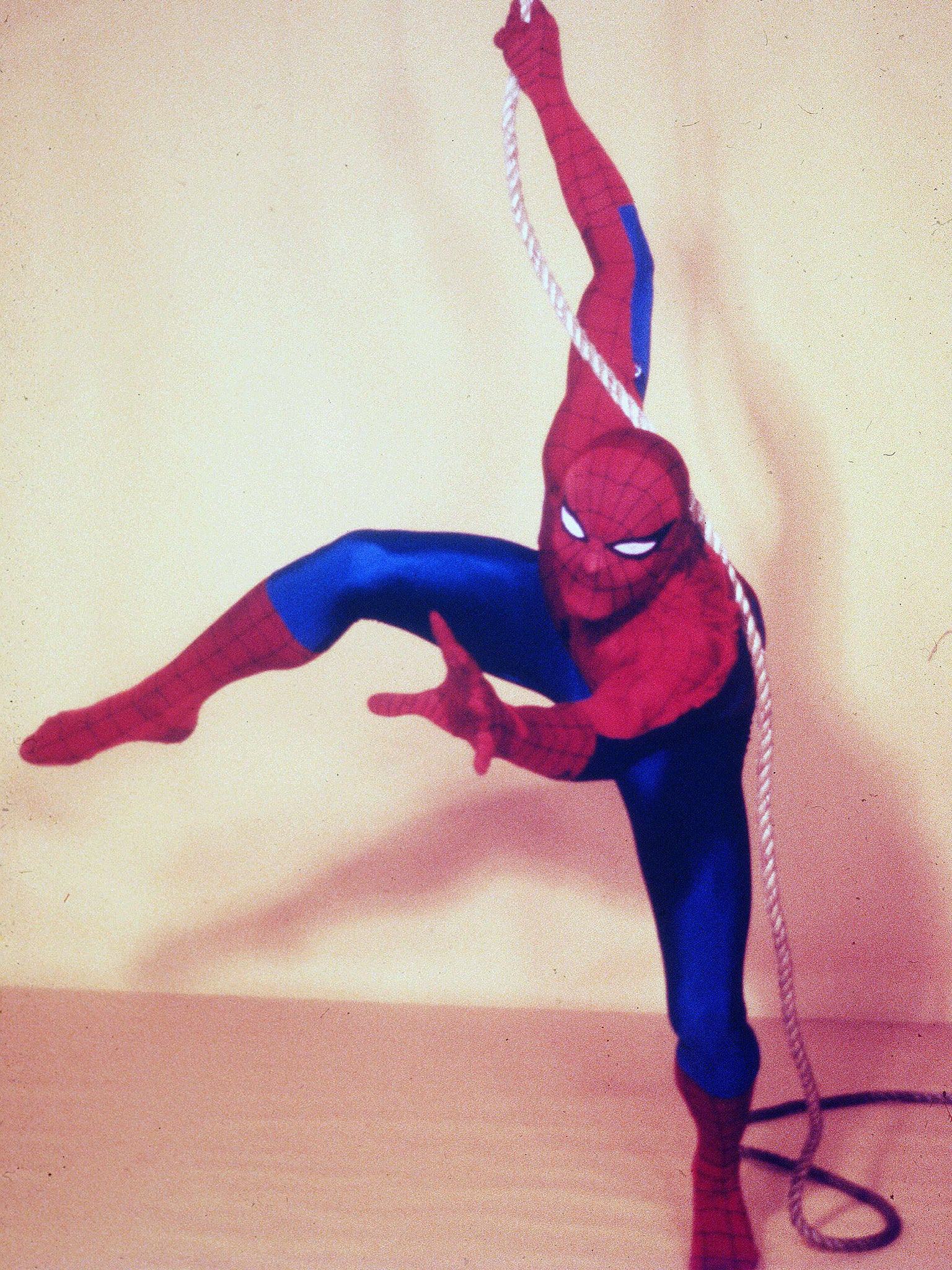
Even as I watched that 1977-made Spider-Man movie starring Nicholas Hammond, even as I stared in wonder at the actual red and blue costume being worn by an actual person, I still felt a vaguely guilty sense of disappointment.
Why were Spider-Man’s webs more like candy-floss? Why did Aunt May not look quite as she did in the comics? Where was the rogues gallery of supervillains, the Green Goblin, the Vulture, Doctor Octopus? Why were the bad guys some vague cultish types whose main power was hypnotism?
That vague sense of missed opportunities was something that any comics reader who suffered the Marvel movies of the Seventies and Eighties will recognise well. In 1979 there was a movie of Captain America, and while it followed the basic strands of the comic plot – super-soldier serum gives man heightened strength and abilities – that was where it pretty much ended.
At least they made an effort with Spider-Man’s costume. Captain America’s was shockingly bad: a Lycra bodysuit with an actual star-spangled motorcycle helmet, to go with his jet-propelled motorbike.
Even as a kid, I was surprised they made a movie in 1978 starring Doctor Strange – and I was also surprised how boring it was. Strange was the surgeon-turned-Master of the Mystic Arts, and though the film featured a lot of elements out of the comic, including Strange’s manservant Wong and his girlfriend Clea, it was unutterably dull.
What I didn’t realise as a child was that all these Marvel adaptations were made-for-television movies. It was a far different world from today’s big-budget shows such as Game of Thrones and The Walking Dead; made for TV meant it was pretty much on a shoestring, and while audiences were being stunned by the special effects in Star Wars and Superman, we were never going to get that level of technology employed for TV.
The one superhero TV show I was obsessed with was The Incredible Hulk, starring Bill Bixby and former Mr America Lou Ferrigno. I even jacked in the Cub Scouts because the dib-dib-dibbing clashed with the weekly adventures of Marvel’s jolly green giant.
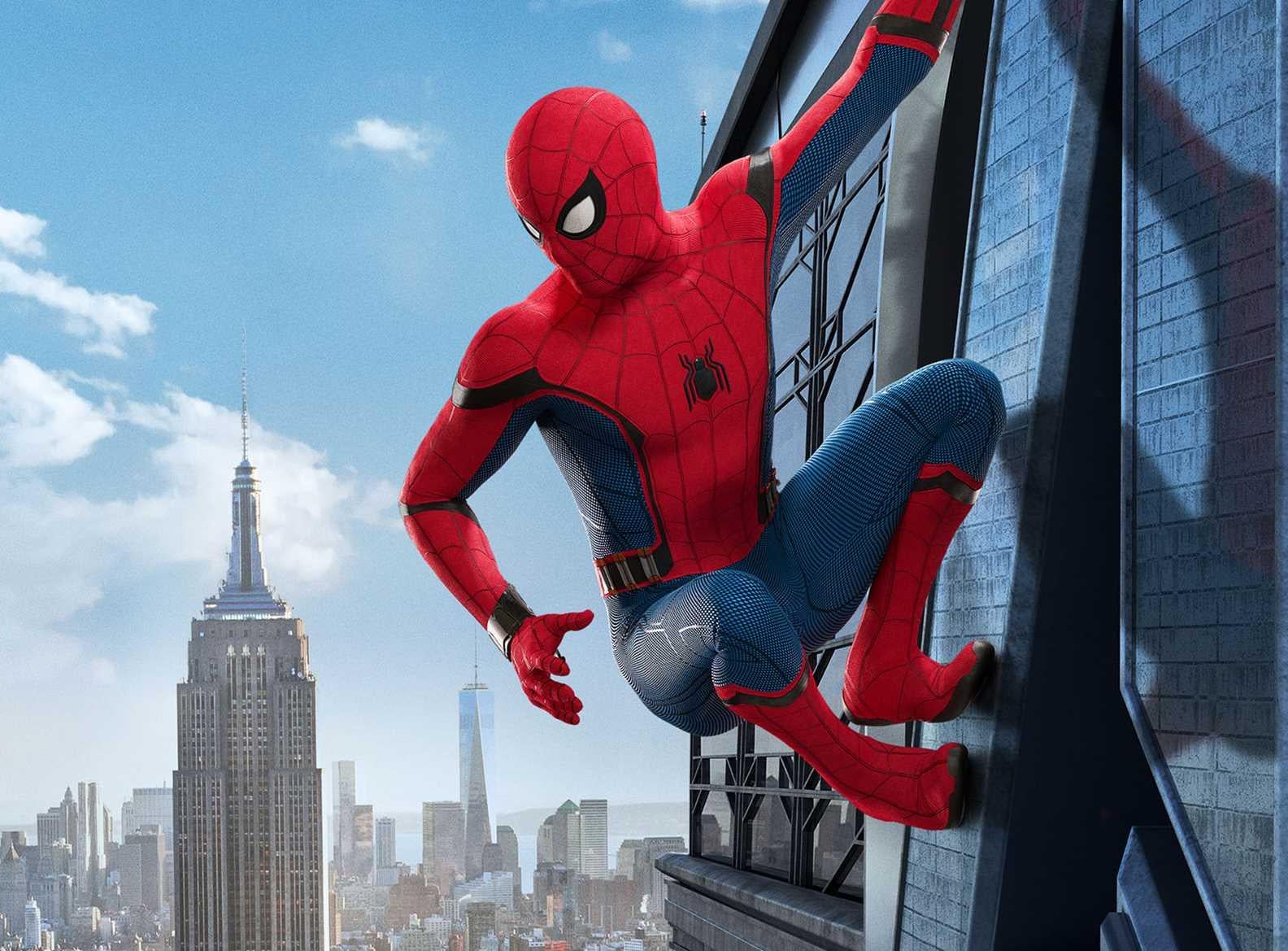
But even then, details bothered me – chief among them why the TV show changed the name of the Hulk’s scientist alter-ego from Bruce to David Banner. But it was a small price to pay.
So consider yourselves lucky. That was my Marvel Cinematic Universe as a kid: a Spider-Man with candy-floss webs and no super villains; a Captain America in a motorcycle helmet; Doctor Strangely-Dull; and a bodybuilder painted green.
Thus, when a new movie starring Iron Man came out in 2008, I didn’t have high expectations. My interest was piqued, of course; Iron Man had never been one of the top-level heroes with the instant recognition factor among non-comics reading civilians, and the involvement of Robert Downey Jr in the title role was bound to be worth a look.
But it wasn’t until I saw the movie – not even at the cinema, but on DVD some time later – that I almost wept. Finally, someone had made a superhero movie that was not only true to the source material, but exciting, smart, funny and brilliant-looking.
Perhaps no one outside the Marvel Studios inner sanctum knew then what we were in for: a new age of cinematic superheroes, which would break many much-loved but largely obscure characters out of the comic book ghetto and into the heady heights of household names.
We had, of course, superhero movies that were good before Iron Man. The Tobey Maguire Spider-Man films of 2002-2007 gave the wall-crawler the cinematic outings he had deserved. The Fantastic Four movies in 2005 and 2007 were not completely awful. Director Ang Lee’s 2003 movie The Hulk was more thoughtful and subtle than any film about a rampaging engine of destruction had any right to be.
But like the execrable output of the 1970s, these movies all existed in their own private universes, when what any proper comics fan wanted was the tangled continuity and cross-pollination of the comics. And that’s what Iron Man – and what swiftly became known as the Marvel Cinematic Universe – gave us, as the years from 2008 to 2012 revealed Marvel’s movie masterplan.
Iron Man was followed by a Hulk reboot, which placed the big fella firmly in the same world as Downey’s playboy billionaire Tony Stark. Then came Thor, the Norse God of Thunder, who with his whirling hammer Mjolnir has been a fixture of the comics universe since 1962.
His 2011 movie, appearing a year after the second Iron Man outing, certainly laid to rest the character’s idiotic appearance in a 1988 TV movie starring the cast of the old Hulk show. Captain America: The First Avenger appeared the same year, and was almost perfect.
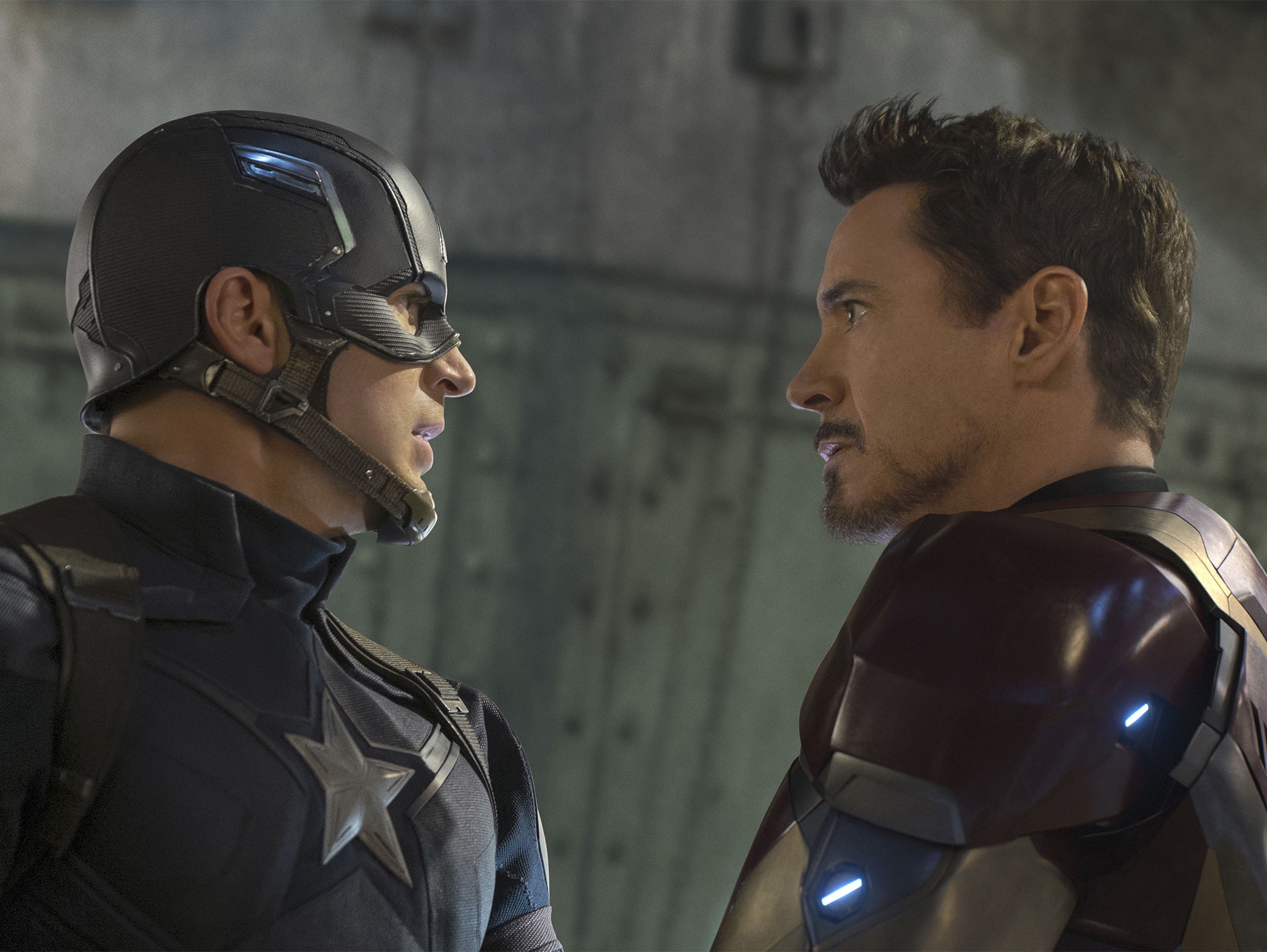
Marvel Studios had taken the essences of these characters and distilled them into credible, logical stories that not only satisfied the comics cognoscenti, but proved accessible to people with no history of comics reading. And when they brought everything together in The Avengers in 2012, the Marvel Cinematic Universe’s place in the modern movie landscape was assured.
And it set a winning pattern that Marvel Studios was going to repeat. What became known as Phase 2 of the MCU had movies for the mainstays – Iron Man, Thor and Captain America – but gave headline outings for characters comic fans never thought they’d see on the big screen: Ant-Man and the Guardians of the Galaxy.
Each movie had its own tone and won over fresh fans, especially Guardians, a pitch-perfect mix of humour, action and music. The second chapter was topped off with another Avengers movie, Age of Ultron, which drew the various hanging plotlines together and sowed the seeds for Phase 3.
The third sequence, thanks to a deal with Sony Pictures who own the rights to the character, saw Spider-Man folded into the MCU in the movie Homecoming, but not before he’d been given an internet-melting cameo in Captain America: Civil War.
We finally got the Doctor Strange movie we deserved, with Inception-style reality-bending effects, and Thor: Ragnarok saw the Hulk and the God of Thunder team up in a way that would make anyone who saw the 1988 TV movie goggle.
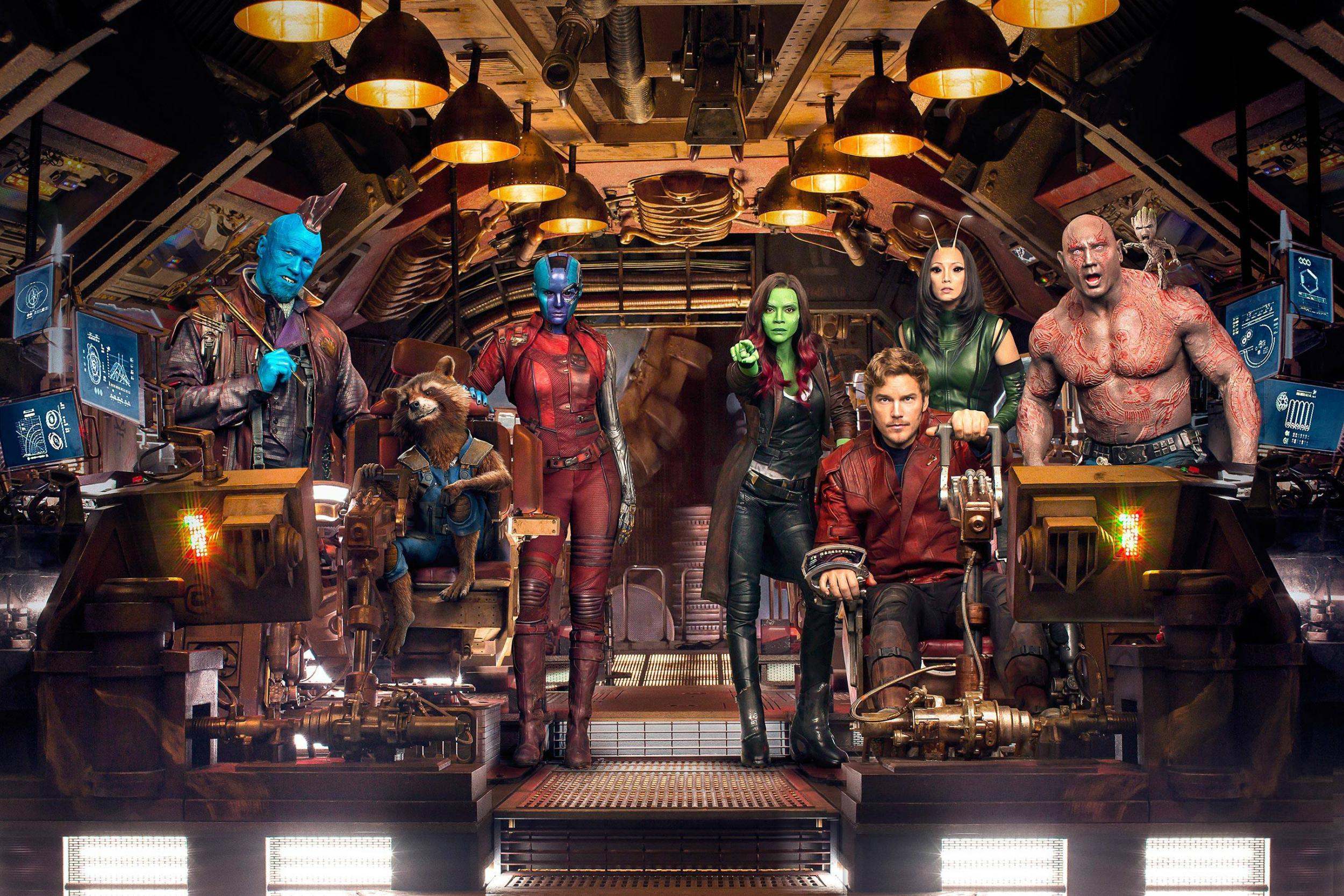
But the breakout hits of Phase 3 were undoubtedly Guardians of the Galaxy Vol 2 and the all-conquering Black Panther, which made five times as much at the box office in America than any other movie released this year.
It’s possible that Avengers: Infinity War, which closes Phase 3, might exceed Black Panther’s box-office record, and it’s not hard to see why. The groundwork for this movie has been carefully laid over the course of a decade, and sees the cosmic entity Thanos, who has been searching for the Infinity Stones seeded throughout the earlier movies, finally making his move on enslaving Earth. If you’ve already seen Infinity War, you’ll know that it takes every single hero who has appeared in the MCU so far to gather in a bid to stop the apocalypse.
But where does that leave the MCU now? We already know that in 2019, the second part of the Infinity War story will be told. We’re also getting a second Spider-Man movie that year, the first film starring Captain Marvel, and this year sees Ant-Man and The Wasp. A third Guardians of the Galaxy movie is slated for 2020.
So the Marvel cinematic juggernaut rolls on… but in what form, after next year’s Avengers movie? The rumour mill is already fired up, and its not hard to see that the MCU as we know it might irrevocably change after 2019.
Captain America actor Chris Evans told The New York Times last month that he’s ready to hang up the shield after next year’s Avengers movie. And if he goes, how long will the other mainstay actors remain?
Iron Man’s Robert Downey Jr had a long and varied career before he pulled on the armour, and likely has a lot of non-Marvel movies in his future. Likewise Thor’s Chris Hemsworth. Deaths of characters have been strongly hinted at… and if you’ve already seen Infinity War, it’s possible you’re already mourning one of your favourites.
The MCU is 10 years old, and it’s almost certain that the old guard are going to move on at some point. But Marvel Studios is equally unlikely to put its cash cow out to pasture because of it. Speculation is that after the fourth Avengers movie in 2019, the entire Marvel Cinematic Universe could be reset, or rebooted, and new characters brought in.
It’s the sort of thing that happens with startling regularity in the comics, in a bid to keep things fresh and attract new readers who don’t want to be weighed down with years of continuity. In recent years, both Iron Man and Thor have been women in the comics, and Spider-Man has been the Black-Hispanic Miles Morales. Everything’s up for grabs.
Maybe this time next year, Thanos will win and lay waste to the Earth. Maybe a new breed of heroes will arise as we say goodbye to Captain America, Iron Man and Thor… or at least their traditional aspects. Maybe characters such as She-Hulk, Dazzler or Wonder Man will get their time on the big screen.
Whatever happens, after 10 years of the Marvel Cinematic Universe, I’m in. I trust Marvel Studios and its boss Kevin Feige implicitly.
After all, nothing can be as bad as watching candy-floss Spidey in a flea-pit in Wigan in the 1970s, right?
Join our commenting forum
Join thought-provoking conversations, follow other Independent readers and see their replies
Comments
Bookmark popover
Removed from bookmarks